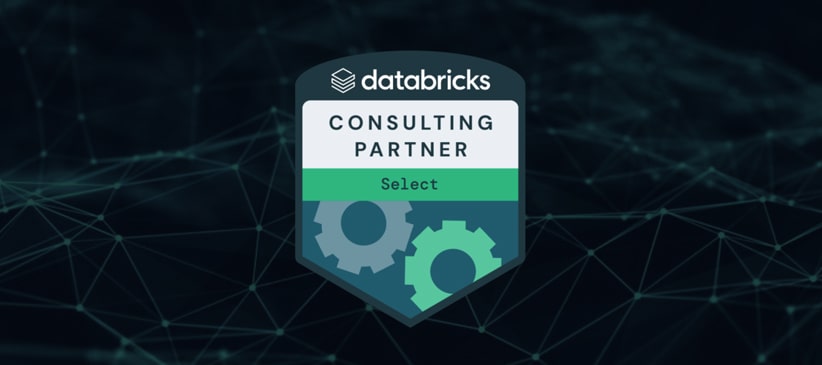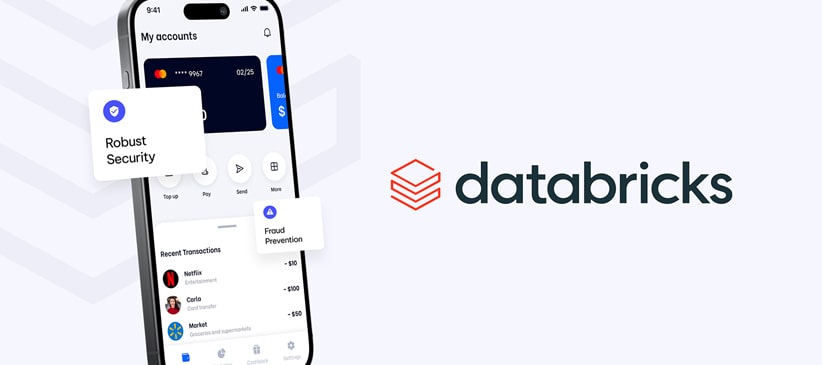Implementing SwiftUI at scale
Check out how to use SwiftUI at Scale, which was shown at Swiftable BA.

Qubika at Databricks Data + AI Summit
Join us June 9-12 to see our leading Databricks capabilities

Financial services
Expertise in core banking, BaaS integrations, payments, and GenAI-enhanced financial solutions.

Healthcare
People-centric healthcare design and solutions, from virtual care, integrations, to smart devices.

Insurance
Modern solutions including self-service, on-demand, and algorithm-driven personalization.

Hi-tech & semiconductors
Semiconductor design, firmware and IoT development, and AI-powered embedded systems.

Qubika is a Databricks Select Partner
Learn more about our journey, our 150+ certified Databricks experts, and how we’re delivering solutions such as autonomous AI agents.

Databricks Capabilities
Learn more about Qubika's strong partnership with Databricks as a Select Partner, delivering solutions across the finance, banking, healthcare, hi-tech, and entertainment industries.

Databricks Impact on Financial Institutions
Databricks empowers financial institutions to harness unified data and AI, such as for real-time fraud detection, dynamic risk modeling, and personalized customer experiences.
May 20, 2023
Our team discusses testing techniques from Swiftable BA.

Testing at scale is a critical aspect of software development, particularly as applications continue to become more complex and integrated with numerous systems. In December 2022, Vivian Santos and Sami Bouchebaba, two leading experts in the field, spoke at Swiftable BA on the topic of testing at scale. Their talk aimed to provide insights and best practices for effectively testing software at large scale. In this article, we’ll explore some of the key takeaways from their presentation, and provide practical tips for developers looking to tackle testing at scale.
Vivian and Sami started their talk by highlighting how Spotify, the popular music streaming service, faces a unique set of challenges when it comes to testing their applications. With hundreds of iOS developers working on five different apps and generating 100s of pull requests (PRs) a day, testing at scale is crucial for ensuring the quality of the apps and enabling developers to ship improvements quickly and confidently. The team responsible for this is “Client Platform”, specifically a group within it called “Mic Check,” whose focus is on improving the testing experience.
The testing process at Spotify is divided into three test suites, with the most important tasks running before any new code is introduced into the rebuild (pre-merge tests). If any of these tests fail, the developer is blocked from merging their code change. Once the code is merged into Master, a slightly more extensive suite of post-merge tests will start, running in parallel across eight worker threads on the CI machines. The current pre-merge test suite consists of 48,000 tests and takes approximately 30 minutes to complete.
The goal of Mic Check is to reduce the pre-merge tests from 48,000 to an infinite number and reduce the pre-merge test time from 30+ minutes to less than 10 minutes. In order to achieve this, the team has focused on writing fewer, smarter, and faster tests.
The speakers highlighted how the issue with the current testing process is that it tests the entire system, even if only one or two components have changed. The solution to this problem was to target only the tests that need to be run based on the changes made. To accomplish this, the team uses an app called Bazel, which is a fast system developed by Google. Bazel’s “Dependency Analysis” feature allows to compare two Git revisions and output the targets that have been affected in the PR. However, due to the interconnectivity of the components, running “bazel-diff” on the app would result in running all the tests.
To overcome this, they separated the API and implementation into two isolated targets, meaning that changes to the implementation will only trigger the implementation target tests. This is known by them as “test isolation.”
They suggested looking into this blogpost on how to do it.
Impact:
The speakers then went on to discuss another issue with the testing process. This was flaky tests, which are tests that pass or fail non-deterministically. Those tests reduce both the speed and quality of the test suite, leading to frustration for developers. Their team implemented a system called Master Guardian to tackle this issue. The system follows three steps:
Another problem they were facing was that some tests in their suite were taking too long to run, with a long test defined as one that lasted 8 seconds or more. In total, they had 23 tests that fell into this category, and the combined time for all of these tests was 3 minutes in their PR to Green Time. To address this issue, their system allowed them to implement a solution in three steps.
The first step is to identify which tests are slow or flaky. The second step is to inform the owners of these tests, and the third step is to skip the slow or flaky tests, while they are not fixed, during pre-merge.
This three-step process starts by checking if a test is slow, and if so, a ticket is created and passed along to the owner for investigation. The owner then updates the slow test cache and all slow and flaky tests are skipped during pre-merge. If a test does fail post-merge, the owner will be notified, but this approach still results in a reduction in PR to Green Time and a less frustrated developer who has more time to work on other tasks.
We heard how at Spotify, testing at scale is a critical component of their development process. With hundreds of iOS developers and over 1,000 PR’s a week, they need to ensure their tests are reliable, fast, and efficient. To achieve this goal, Spotify has taken a number of steps to improve their test suites, including writing fewer, smarter, and faster tests.
One approach they’ve taken to writing fewer tests is by using the Bazel app to identify and run only the tests necessary for a given changeset. This approach has resulted in a 66% reduction in startup time in their CI, a build time of 10-15 minutes, and a test time of 1-15 minutes.
Another approach they’ve taken to writing smarter tests is by identifying and skipping flaky tests. They have implemented a system called Master Guardian, which identifies flaky tests, informs their owners, and skips them pre-merge. This helps to reduce the PR to Green Time and minimize frustration for developers.
In conclusion, Spotify has achieved remarkable success in enhancing their testing methodology that has ultimately resulted in maintaining the app’s functionality and high confidence. Here at Qubika we think that the implementation of this approach seems very promising for future endeavors. Being in a constant growth phase, we are open to investigating the practicality of this method and its potential benefits that may prove to be valuable in the future.
Learn more about the work of our QA Studio.

Senior iOS Developer
Receive regular updates about our latest work

Check out how to use SwiftUI at Scale, which was shown at Swiftable BA.


Take a look at the different types of testing used by our QA Studio.


Qubika’s QA Studio shares the ultimate guide to validation testing, sharing everything you need to know about testing.

Receive regular updates about our latest work
Get in touch with our experts to review your idea or product, and discuss options for the best approach
Get in touchArtificial Intelligence Services
Accelerate AI
Healthcare Solutions
Data
Agentic Factory
Financial Services Technology
Platform engineering
Data Foundation